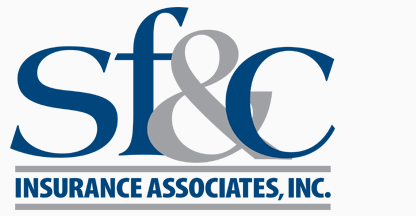 Talk to 20-yr-olds about purchasing Disability Insurance, and they look at you as though you have grown a second head.
Talk to 20-yr-olds about purchasing Disability Insurance, and they look at you as though you have grown a second head.
This demographic almost always thinks that only “old” people get disabled; that there will be plenty of time to obtain this type of coverage. They feel their money is better spent on …
- gym memberships
- dating
- a weekend away
Almost ANYTHING that is more fun than another type of insurance, “for heaven’s sake.”
BUT, have you thought of the “youngster” who was in a car accident and is sent home from the hospital, unable to conduct some of the basic activities of daily living? Or about the friend who slipped, hit her head and is going to be out of work, recovering for who-knows-how-many months? Somebody who has contracted a disease and is paralyzed as a result? LIFE HAPPENS.
In fact, the probability of a disability (short and long-term) is considerably greater than the likelihood of death until the age of 60. Even if you were only partially disabled and unable to return to work, your income would stop, at least for that amount of time.
Okay. The fact is that most disabilities sustained by the under-60s are “short-term,” usually lasting less than 90 days. Will you continue to receive a paycheck? No? So how do you pay your bills? Or, how do you make up for the income of the family member who has to stay home to care for you?
 And let’s not forget about MATERNITY. You/your spouse gets maternity leave, you say. Fine. But you DO KNOW, that there are always additional family expenses (and some unexpected) right after the arrival of the “bundle of joy,” which are NOT NEARLY SO JOYFUL. Would the additional disability income not be welcomed at this happy, albeit sleepless time?
And let’s not forget about MATERNITY. You/your spouse gets maternity leave, you say. Fine. But you DO KNOW, that there are always additional family expenses (and some unexpected) right after the arrival of the “bundle of joy,” which are NOT NEARLY SO JOYFUL. Would the additional disability income not be welcomed at this happy, albeit sleepless time?
It is statistically proven that the need for DISABILITY INSURANCE has increased because families are less able to afford to support those family members in need. And if you are as paycheck-dependent as are most of us, most of your paycheck is already programmed (which is to say, SPENT).
So, even if your check does not stop during those 90-or-so days of disability, where will the money come from for your additional disability-related expenses? These expenses may not even be medically-related—additional childcare, house cleaning, car service, etc. Whatever the expenses, it still boils down to the same thing—more money at a time when you are either not making any, or certainly not making more than you were BEFORE you became disabled.
One out of 4 of today’s 20-year-olds will become disabled before reaching the age of 67
What should you look for when considering DISABILITY INSURANCE?
- Benefits payable in addition to any income you are already receiving;
- Tax free benefits
- Maternity considered a disability
- Plan should be portable
- Cost of coverage will not increase as you get older; the younger you are at time of enrollment, the lower the rates
- Pre-existing conditions will be covered after a year
- Elimination period should suit your financial circumstances (how long can you continue your lifestyle without receiving that additional income?)
- Benefit levels available are adequate to meet your needs
- Cost of insurance is financially manageable.
